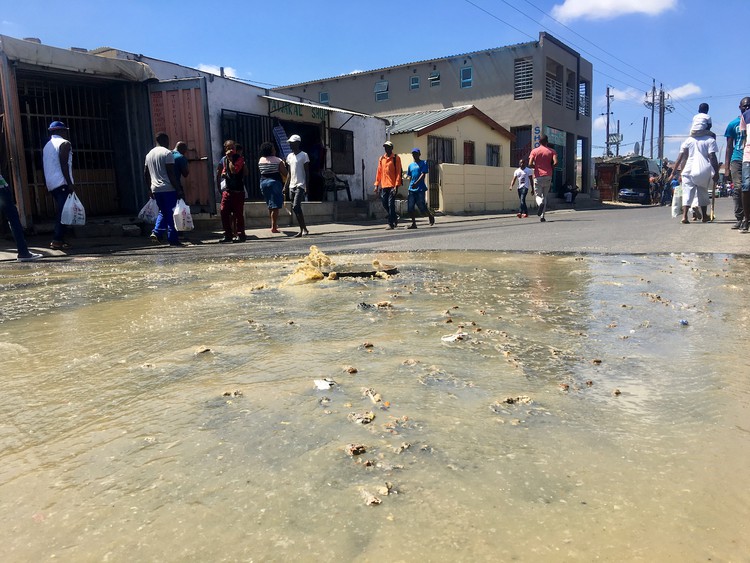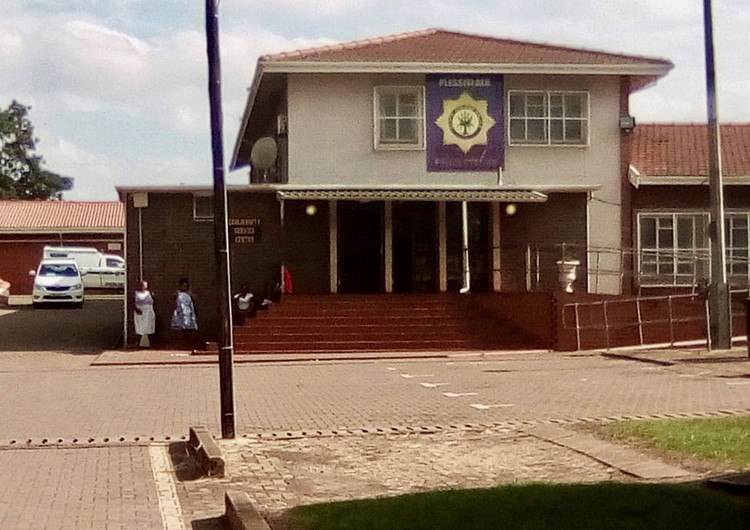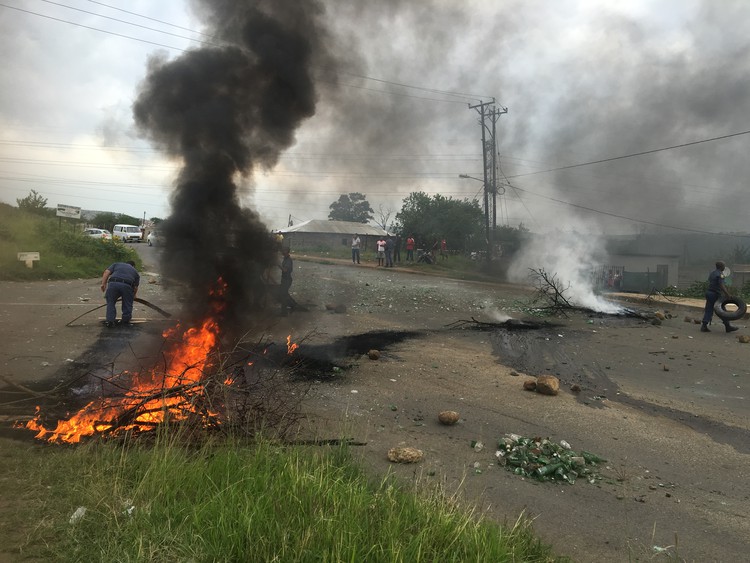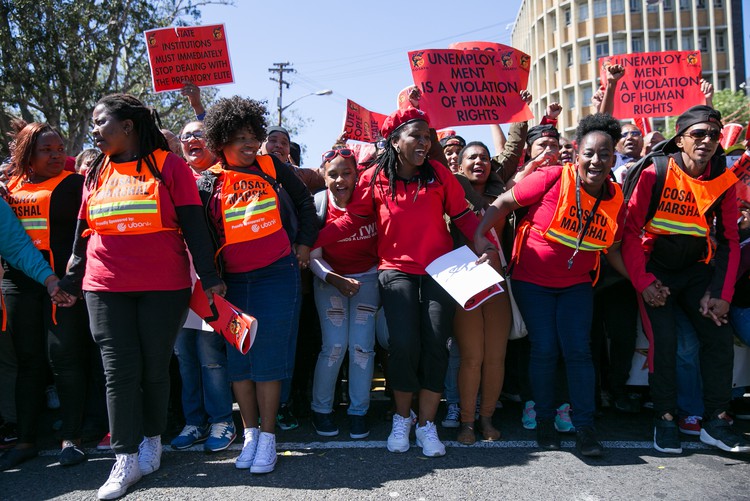City blames the mess on “misuse of the sewer system”
Raw sewage flowing in Dunoon streets has become an almost daily ordeal for residents, who say they are fed-up.
Sewer pipes in Dunoon are frequently blocked, resulting in sewage bubbling up through manholes.
Filthy water, used toilet paper and condoms flow past residents’ homes and the businesses that line the pavement.
The stench emanating is inescapable in this township which is home to 37,000 people.
Aphiwe Jezile, a mother of a child aged seven, has been living in Dunoon for 16 years. She says she has seen a child between the age of four and five dipping a comb into the raw sewage, raising it to her mouth and licking it.
“I felt angry and disappointed at the City, and I felt disgusted,” said Jezile.
Some residents have posted their complaints on social networking sites, publishing pictures of bubbling sewage and potholes.
The filthy living conditions are not new, says resident Nkhanyiso Ntweni. “It has always been like this. When it’s time to vote they always come to convince us to vote but they don’t fulfill what they promise during the campaign.”
Mayco member for transport Felicity Purchase said the City’s roads and stormwater department sent road repair teams to repair potholes across the metro, including Dunoon.
She said the City is aware of frequent sewage overflows in Dunoon as a result of “the misuse of the sewer system”.
Purchase said the main cause of blockages and overflows was the dumping of rags and cooking oil or fat into the sewer system, and litter which entered the system through manholes where the covers had been stolen.
In addition, she said, backyard shacks built over the manholes meant that teams could not get to the sites and clear the blockages.
But Kwanele Jezile, Aphiwe Jezile’s husband, said the City should provide general waste skips around illegal dumping hotspots in the township.
“Residents are at fault but that doesn’t give the City the right to leave people to live like pigs. We are not impressed with the City’s blame game. Everybody should play their role,” said Jezile.
Purchase said in Dunoon the City had attended to “at least 407 notifications” in the last six months, not including daily bucket cleaning and vacuum and jet cleaning.
Mayco member for water and waste Xanthea Limberg said the City spent about R120 million each year clearing illegal dumping hotspots, but battled to keep pace with the problem.
The City offered a reward of up to R5,000 for information leading to an impoundment, conviction, or arrest for illegal dumping. “We urge members of the public to help us catch these criminals who are polluting our communities,” she said.
Residents can report illegal dumping by phoning 021 480 7700 from a cell phone or 107 from a landline.
3 April 2019 By Peter Luhanga
© 2019 GroundUp.
Sewer pipes in Dunoon are frequently blocked, resulting in sewage bubbling up through manholes.
Filthy water, used toilet paper and condoms flow past residents’ homes and the businesses that line the pavement.
The stench emanating is inescapable in this township which is home to 37,000 people.
Aphiwe Jezile, a mother of a child aged seven, has been living in Dunoon for 16 years. She says she has seen a child between the age of four and five dipping a comb into the raw sewage, raising it to her mouth and licking it.
“I felt angry and disappointed at the City, and I felt disgusted,” said Jezile.
Some residents have posted their complaints on social networking sites, publishing pictures of bubbling sewage and potholes.
The filthy living conditions are not new, says resident Nkhanyiso Ntweni. “It has always been like this. When it’s time to vote they always come to convince us to vote but they don’t fulfill what they promise during the campaign.”
Mayco member for transport Felicity Purchase said the City’s roads and stormwater department sent road repair teams to repair potholes across the metro, including Dunoon.
She said the City is aware of frequent sewage overflows in Dunoon as a result of “the misuse of the sewer system”.
Purchase said the main cause of blockages and overflows was the dumping of rags and cooking oil or fat into the sewer system, and litter which entered the system through manholes where the covers had been stolen.
In addition, she said, backyard shacks built over the manholes meant that teams could not get to the sites and clear the blockages.
But Kwanele Jezile, Aphiwe Jezile’s husband, said the City should provide general waste skips around illegal dumping hotspots in the township.
“Residents are at fault but that doesn’t give the City the right to leave people to live like pigs. We are not impressed with the City’s blame game. Everybody should play their role,” said Jezile.
Purchase said in Dunoon the City had attended to “at least 407 notifications” in the last six months, not including daily bucket cleaning and vacuum and jet cleaning.
Mayco member for water and waste Xanthea Limberg said the City spent about R120 million each year clearing illegal dumping hotspots, but battled to keep pace with the problem.
The City offered a reward of up to R5,000 for information leading to an impoundment, conviction, or arrest for illegal dumping. “We urge members of the public to help us catch these criminals who are polluting our communities,” she said.
Residents can report illegal dumping by phoning 021 480 7700 from a cell phone or 107 from a landline.
3 April 2019 By Peter Luhanga
© 2019 GroundUp.




